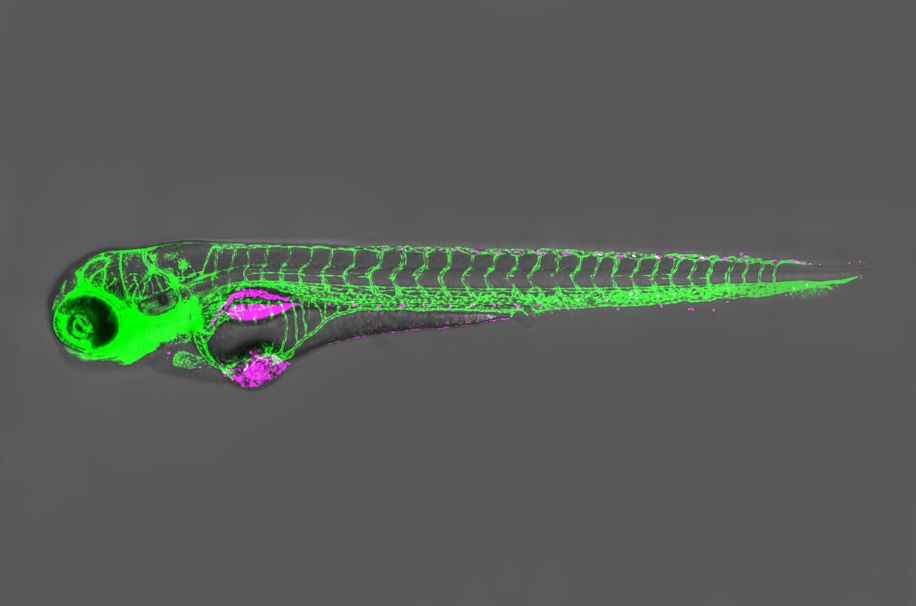Zebrafish could help personalize cancer treatments
A new clinical trial in Portugal will test whether zebrafish embryos can help doctors choose the best cancer treatments. Led by Rita Fior of the Champalimaud Foundation, this five-year study is the first to use zebrafish implanted with patients' tumor cells to guide treatment decisions in real-time.
The idea, outlined in the journal Science, is simple: researchers take cancer cells from a patient, tag them with a fluorescent marker, and implant them into transparent zebrafish embryos. These embryos grow outside the mother and are easy to study under a microscope. By exposing the fish to cancer drugs or radiation, researchers can quickly see which treatments shrink the tumor - and which don’t.
More to read:
Researchers discover jellyfish species that can fuse into one organism
This approach, known as "zebrafish avatars," could help patients avoid harmful treatments that are unlikely to work.
In previous studies, zebrafish correctly predicted treatment outcomes for colorectal cancer in 80% of cases. A 2024 study in Nature Communications extended this research, showing that zebrafish avatars successfully predicted chemotherapy outcomes for 50 out of 55 patients.

A young zebrafish. Credit: Science.org
Zebrafish have advantages over other cancer models, such as mice or lab-grown cell cultures. They are faster and cheaper than mice and provide more accurate results than cell cultures, which lack the complexity of living organisms. Results from zebrafish avatars can be ready in just 9 days for blood cancers and 10 days for solid tumors - a crucial timeframe for cancer treatment decisions.
In the trial, cancer cells will be collected from fluid drained during routine procedures for patients with metastatic breast or ovarian cancer. Half of the patients will receive treatments suggested by zebrafish avatars, while the other half will follow their doctors’ usual recommendations.
More to read:
Researchers discover a walking fish in underwater mountains
Despite their promise, zebrafish avatars face skepticism. Many doctors are unfamiliar with the method or prefer traditional approaches.
The researchers behind the study believe the trial could change that as oncology is about the data. If successful, zebrafish avatars could become a powerful tool for personalizing cancer treatments, helping patients get the right therapy faster and with fewer side effects.
***
NewsCafe relies in its reporting on research papers that need to be cracked down to average understanding. Some even need to be paid for. You can support us via PayPal: office[at]rudeana.com or paypal.me/newscafeeu, or https://buymeacoffee.com/newscafe . Any amount is welcome.





![[video] Russia establishes](/news_img/2025/01/19/news0_mediu.jpg)
